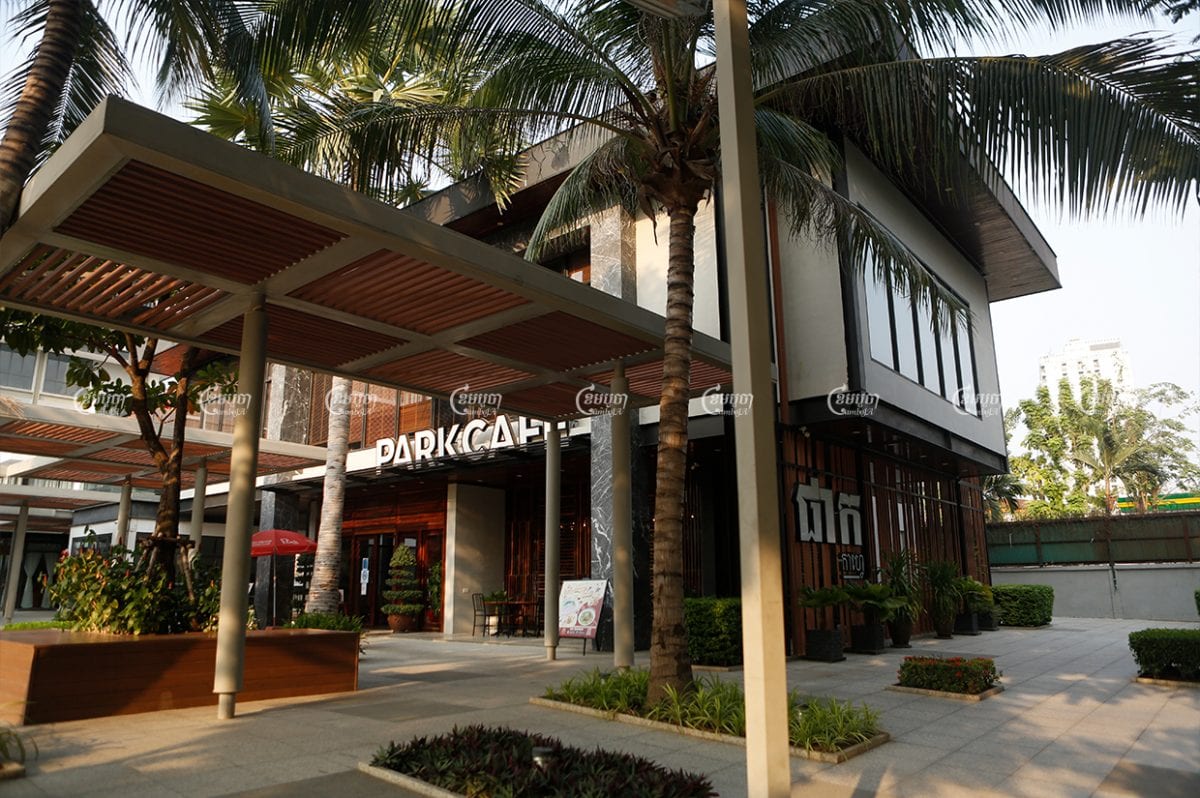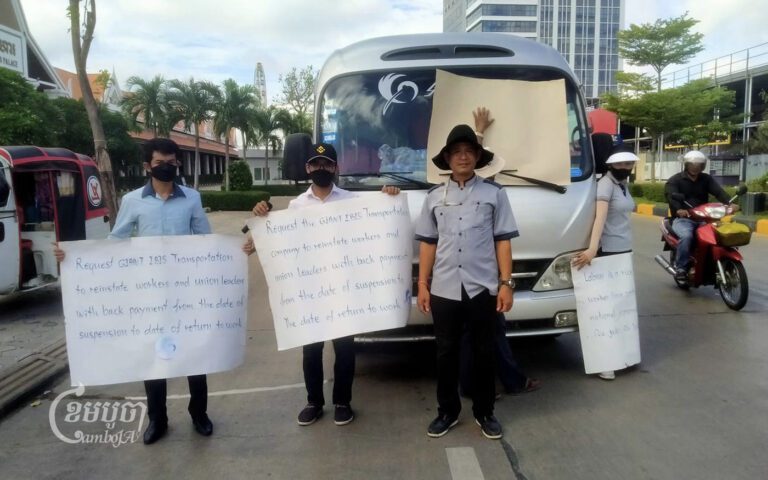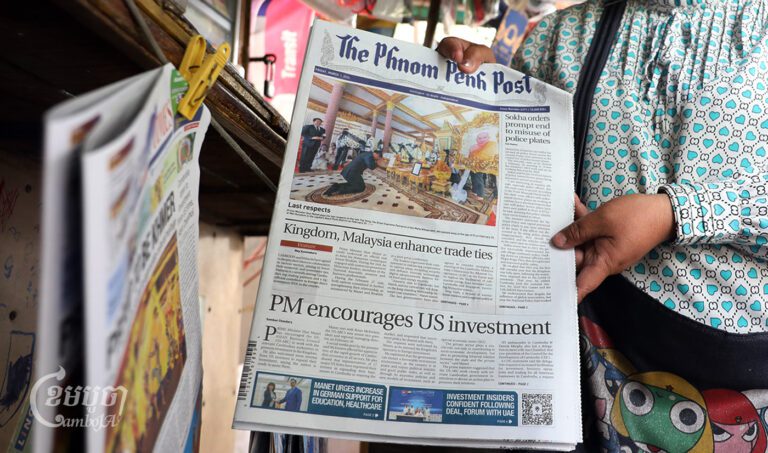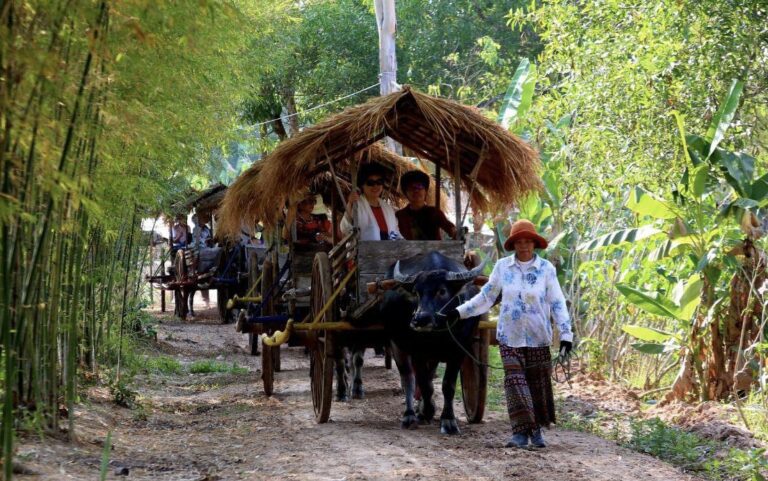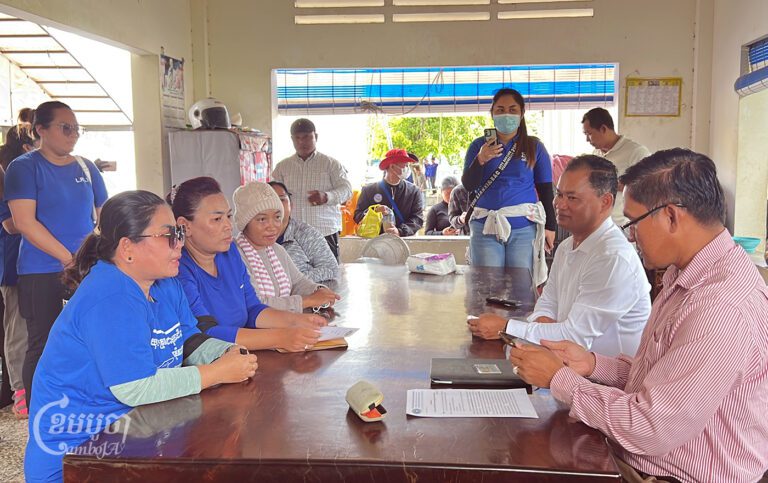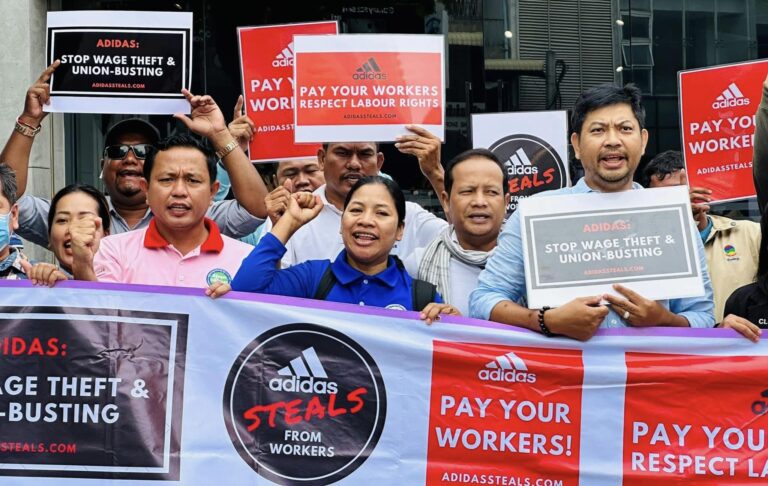It’s lunch time but there are only a few diners at the Park Café on Mao Tse Tung Blvd.
At the restaurant’s entrance, staff wearing face masks check customers’ temperatures and give them hand sanitizer before they are allowed in.
Heng Sengly, managing director of Park Café — which has 16 restaurants in Phnom Penh, Sihanoukville and Kampong Cham — said that the number of people dining in had dropped twice as much as they had during previous outbreaks.
“This time everything is getting worse than before. The third outbreak of Covid-19 is more serious,” he said.
With a total of around 500 staff, the company is looking to avoid job cuts.
“We are trying to find way to boost our sales to comply with the new normal of Covid-19,” he said.
Delivery service has become core to keeping the business afloat, helping offset the losses as indoor dining plummets.
“People don’t want to touch cash, so we have digital payment that offers a safe alternative,” he said.
Since the global pandemic began in January 2020, Cambodia has recorded a total of 1578 cases of Covid-19 — 1062 of them related to a single community transmission cluster that began on February 20, 2021, and which continues to grow.
Tep Virak, general manager of the Express Food Group (EFG), which operates six brands across 70 shops in Cambodia said that the company is considering closing some shops as the outbreak continues.
Virak said next week the management team will start to evaluate all 70 stores to decided how many shops must be closed.
“We hardly earn even a hundred dollar a day in some stores. It’s a hard time,” he said. “We will finalize with the management team to decide which shops should be closed because we cannot handle such a huge loss, we need to close to save costs.”
He said overall business has declined by more than 80 percent since the latest outbreak began.
EFG’s six brands include the Pizza Company, Swensen’s, Dairy Queen, Krispy Kreme, Bar BQ Plaza and the Coffee Club.
EFG has more than 1,250 employees, according to Virak, who said cutting jobs would be a last resort.
“We need to see the real situation — whether we can transfer some staff to other branches or whether we need to cut them as the last option,” he said. “For locations that cannot generate revenue we need to close them down. We don’t want to cut staff, though, because it will affect their livelihood as they may find it hard to get a new job during the pandemic.”
The government has provided a tax exemption for all tourism-related businesses or services since the start of the pandemic and has given monthly stipends to assist garment workerswho have lost their jobs, as well as poor people — though that is set to end this month after being extended in January.
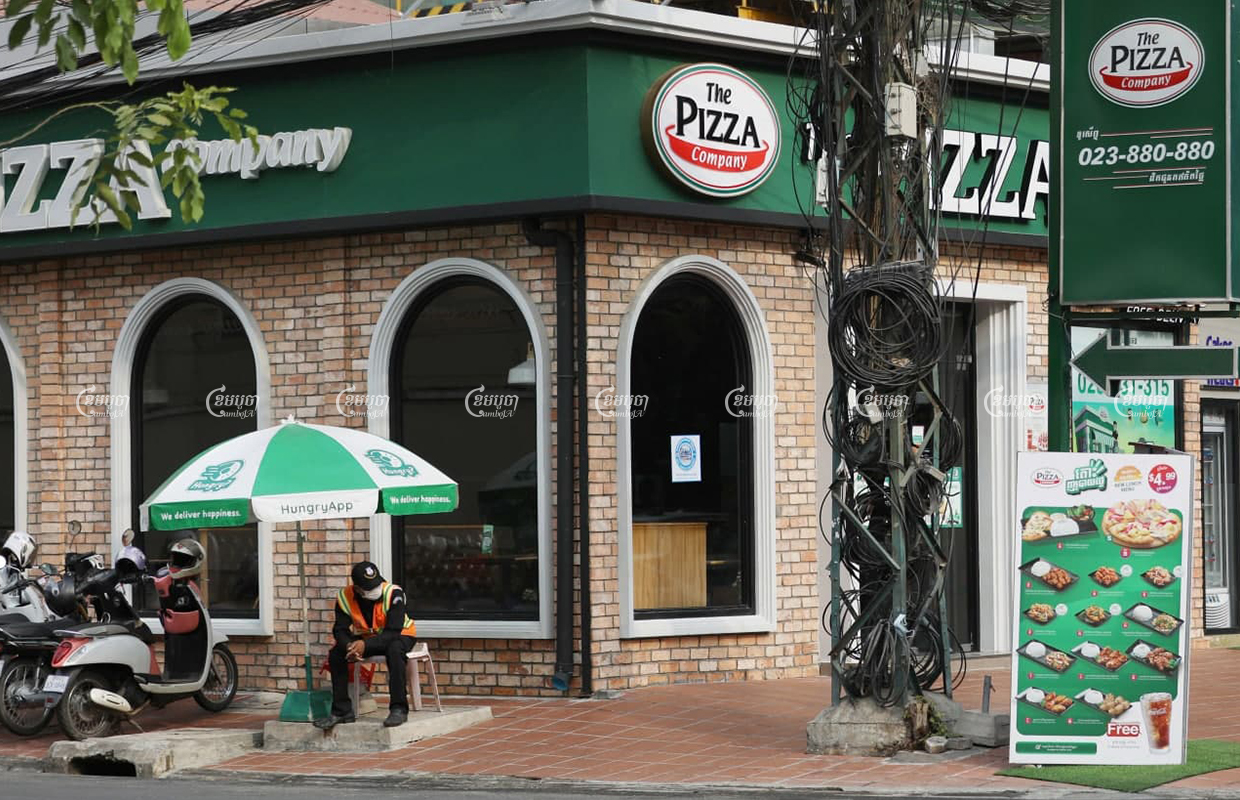
Chhay Sivlin, president of the Cambodia Association of Travel Agents (CATA), said tourism operators had slowly begun resuming operation late last year, focusing on domestic rather than foreign tourists.
“The sector then was helped by local people. But since the third outbreak, everything is gone again and some tour operators ran out of reserve capital. The sector is now completely dead,” she said.
Sivlin said more than 300 travel agencies and tour operators that are members of CATA have closed in the past year.
Tourism Ministry figures show that 2,830 tourism-related businesses and services were closed or suspended operations last year.
According to the ADB, the pandemic stands to cost the Asia Pacific region some $70 million jobs and $1.1 trillion in GDP — more than any other region in the world. Countries like Cambodia whose economy relies heavily on the tourism sector have been particularly hard hit.
Te Taing Por, president of the Federation of Association of Small and Medium Enterprises of Cambodia (Fasmec), said that tourism operators are increasingly having to go into debt to keep their businesses afloat.
“The state-owned SME bank has only a small amount of loans available, so it could not supply all the SMEs across the country. Now some SMEs are applying for loans from commercial banks with higher interest rate,” he said.
Meas Soksensan, spokesperson at the Ministry of Economy and Finance, said the government is: “strongly concerned over the economic impact. But we shouldn’t judge the situation tooquickly and we must let the government evaluate which are the priority sectors that are the country’s economic backbone, because we cannot help all sectors.”
He said that Cambodia will set aside more than $800 million to support the economy in 2021, amid the pandemic. He said the government package of more than $1.14 billion reserved for 2020 has mostly been used up.
Hong Vannak, a business researcher at the Royal Academy of Cambodia, said that during the latest outbreak, small and medium enterprises including individual families are facing higher loan burdens as their businesses and jobs have been affected by Covid-19.
“When the business situation is damaged, it will affect the labor force and jobs creation, so it brings to loss to the individual, family, and national economic income, especially in the tourism services sector,” he said.
Vannak said it is unlikely the country can achieve 4 percent growth as forecasted.
“The manufacturing, construction, and property sectors have now been affected by the pandemic so the country’s GDP will not reach the predicted rate,” he said.


